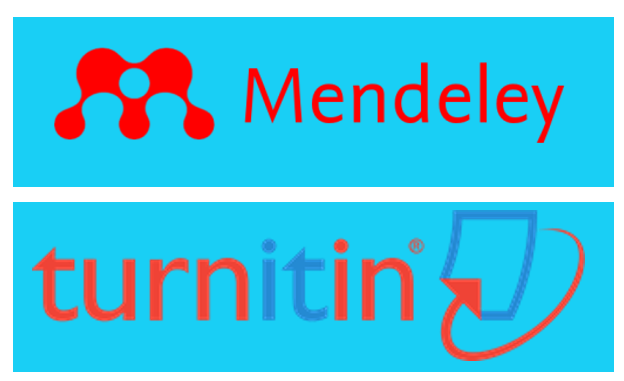Publication Ethics
The following statements which are based on COPE’s Best Practice Guidelines for Journal Editors clarify ethical behavior of all parties involved in the act of publishing an article in Humanities & Language : International Journal of Linguistics, Humanities, and Education (abbreviated as HUMANIOLA).
AUTHORS
Reporting Standard
- Authors are expected to have made reasonable attempts to check and validate results submitted to the journal for publication.
- Authors should provide real and authentic research data.
- Authors should confirm that the journal is not published in another journal.
- Authors are required to cite the sources correctly by considering the content of the manuscript either in the form of written publications and personal interviews.
Originality and plagiarism
- The authors should confirm that they have written entirely original works, and if the authors have used the work and/or words of others that this has been appropriately cited or quoted.
Multiple, Redundant, or Concurrent Publication
- Authors should not submit or publish the same manuscript to more than one journal or primary publication.
Authorship of the Paper
- Authorship should be limited to those who have made a significant contribution to the conception, design, execution, or interpretation of the reported research.
- All those who have made significant contributions should be listed as co-authors.
- Where there are others who have participated in certain substantive aspects of the research project, they should be acknowledged or listed as contributors.
Data Access and Retention
- Authors may be asked to provide the raw data in connection with a paper for editorial review, and should in any event be prepared to keep such data for a reasonable time after publication.
Disclosure and Conflicts of Interest
- All authors should disclose in their manuscript any financial or other substantive conflict of interest that might be construed to influence the results or interpretation of their manuscript.
- All sources of financial support for the project should be disclosed.
Fundamental Errors in Published Works
- When an author discovers a significant error or inaccuracy in his/her own published work, it is the author's obligation to promptly notify the journal editor or publisher and cooperate with the editor to retract or correct the paper.
- If the editor or the publisher learns from a third party that a published work contains a significant error, it is the obligation of the author to promptly retract or correct the paper or provide evidence to the editor of the correctness of the original paper.
Research Involving Human Subjects
- When reporting on research that involves human subjects, authors must declare that the investigations were conducted following the standards for best practices on ethical matters. As a minimum, a statement of an ethical statement reads as follows: "All subjects gave their informed consent for inclusion before they participated in the study." For non-interventional studies, for example, surveys, questionnaires, and social media research, all participants must be fully informed if the anonymity is assured. As with all research involving humans, ethical approval from an appropriate ethics committee must be obtained prior to conducting the study. If ethical approval is not required, authors must either provide an exemption from the ethics committee or are encouraged to cite the local or national legislation that indicates ethics approval is not required for this type of study. If the study reports research involving vulnerable groups, an additional check may be performed. The submitted manuscript will be scrutinized by the editorial office and upon request, documentary evidence should be supplied.
EDITORS
Fair Play
- An editor assesses manuscripts based only on the originality and the quality of the paper and should not be affected by the religious, national, political or any other influences. Based on the review report of the editorial board, the editor can accept, reject, or request modifications to the manuscript.
Confidentiality
- The editors and any editorial staff must not disclose any information about a submitted manuscript to anyone other than the corresponding author, reviewers, potential reviewers, other editorial advisers, and the publisher, as appropriate.
Disclosure and Conflicts of Interest
- The editor of HUMANIOLA Journal will not use unpublished materials disclosed in a submitted manuscript for his own research without written consent of the author. The editor should not be involved in decisions about papers in which they have a conflict of interest.
PEER REVIEWERS
Contribution to Editorial Decisions
- Peer review assists the editor in making editorial decisions and through the editorial communications with the author may also assist the author to give proper assessment and judgement of the submitted paper.
- Reviewers should immediately inform the editor if any form of plagiarism is identified within submitted work.
Promptness
- Any selected referee who feels unqualified to review the research reported in a manuscript or knows that its prompt review will be impossible should notify the editors and excuse himself from the review process.
Confidentiality
- Any manuscripts received for review must be treated as confidential documents. They must not be shown to, or discussed with others except as authorized by the editor.
Standards of Objectivity
- Reviews should be conducted objectively. Personal criticism of the author is inappropriate. The reviewers should express their views clearly with supporting rationale arguments.
Acknowledgement of Sources
- Reviewers should point out on relevant published work which is not cited in the article.
- Any statement that an observation, derivation, or argument had been previously reported should be accompanied by the relevant citation.
- A reviewer should also call to the editor's attention any substantial similarity or overlap between the manuscript under consideration and any other published paper of which they have personal knowledge.
Disclosure and Conflict of Interest
- Privileged information or ideas obtained through peer review must be kept confidential and not used for personal advantage.
- Reviewers should not consider manuscripts in which they have conflicts of interest resulting from competitive, collaborative, or other relationships with any of the authors or institutions connected to the papers.
PUBLISHER
- HUMANIOLA Journal is committed to ensuring that commercial interest has no impact or influence on editorial decisions.
- HUMANIOLA Journal will assist in communications with other journals where this is useful to the authors.
- HUMANIOLA Journal is working closely with all related divisions to set standards for best practices on ethical matters, errors and retractions, and is prepared to provide specialized legal review and counsel if necessary.
Humanities & Language : International Journal of Linguistics, Humanities, and Education, E-ISSN 3031-5670, is an international peer-reviewed journal devoted to the advancement of studies in linguistics, humanities, and education. The journal publishes original and previously unpublished research articles and scholarly papers written in English that contribute to theoretical, analytical, and empirical discussions in these fields.
HUMANIOLA is published Quarterly a year and adopts a double-blind peer review process to ensure academic rigor and objectivity. The journal is published by Abdul Media Literasi and serves as an interdisciplinary forum that brings together research on language, culture, education, and the humanities.
The journal welcomes submissions covering, but not limited to, the following areas:
- Linguistics and language studies
- Applied linguistics and language education
- Humanities and cultural studies
- Literature and discourse related to language and education
- Interdisciplinary studies connecting language, humanities, and education
Other relevant and interdisciplinary topics aligned with the journal’s aims and scope will also be considered.





